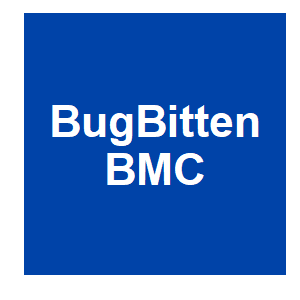
Media
A curated collection of articles from the popular press

|
His Passion Was ContagiousD. C. McCool, Notre Dame Magazine, 2021.
Craig was an entomologist and vector biologist whose interest in mosquitoes and the diseases they transmit to people was as contagious as the pathogens themselves. Hesburgh could not have chosen a more driven faculty member. In his 38 years at Notre Dame, before he died in 1995 ... Keywords: bacteria, molecular engineering, mosquito-borne disease, Plasmodium |

|
Edit, undo: Temporary gene editing could help solve the mosquito problemL. Dormehl, digitaltrends, 2020.
But if SyFy original movies have taught us anything, it’s that genetically tweaking organisms and then releasing them can… well, not go quite according to plan.With that in mind, a new Texas A&M AgriLife Research project seeks to test out genetic modifications of mosquitos ... Keywords: bacteria, molecular engineering, mosquito-borne disease, Plasmodium |

|
Self-deleting genes promise risk-free genetic engineering of mosquitoesD. Quick, New Atlas, 2020.
A new project by Texas A&M AgriLife Research is looking to enable "test runs" of genetic changes to mosquitoes that are automatically deleted. Various angles of attack using genetic engineering to combat mosquitoes have been pursued in recent years, including modifying them so ... Keywords: bacteria, molecular engineering, mosquito-borne disease, Plasmodium |

|
Self-deleting genes to be tested as part of mosquito population control conceptB. Hays, UPI, 2020.
Scientists at Texas A&M have developed a new technique for altering the genes of mosquitoes -- the new technology will cause genetic changes to self-delete from the mosquitoes' genome. Thanks to the breakthrough, described Monday in the Philosophical Transactions of the Royal ... Keywords: bacteria, molecular engineering, mosquito-borne disease, Plasmodium |

|
$3.9M project on self-deleting genes takes aim at mosquito-borne diseasesO. Kuchment, AGRILIFE Today, 2020.
To control mosquito populations and prevent them from transmitting diseases such as malaria, many researchers are pursuing strategies in mosquito genetic engineering. A new Texas A&M AgriLife Research project aims to enable temporary “test runs” of proposed genetic changes in ... Keywords: bacteria, molecular engineering, mosquito-borne disease, Plasmodium |

|
Self-deleting genes tested as part of the concept of mosquito population controlcharlottelarson, NEWYORK NEWS TIMES, 2020.
Most genetic engineering strategies designed to control mosquito populations, and their ability to spread diseases such as malaria, require gene editing to be combined with gene drives. Gene drives allow altered DNA to spread rapidly throughout the population. Keywords: bacteria, molecular engineering, mosquito-borne disease, Plasmodium |

|
New GE unintentionally leaves traces in cellsC. Then, Testbiotech, 2020.
A new scientific publication shows that CRISPR/Cas gene scissor applications in animals unintentionally leave traces. The findings are not related to unintended changes in the DNA, which have often been described, but to gene regulation, i.e. epigenetics. The effects are ... Keywords: bacteria, molecular engineering, mosquito-borne disease, Plasmodium |

|
Converting female mosquitoes to non-biting males with implications for mosquito controlM. V. Candy, Vet Candy, 2020.
Virginia Tech researchers have proven that a single gene can convert female Aedes aegypti mosquitoes into fertile male mosquitoes and identified a gene needed for male mosquito flight. Male mosquitoes do not bite and are unable to transmit pathogens to humans. Female mosquitoes, ... Keywords: bacteria, molecular engineering, mosquito-borne disease, Plasmodium |

|
New insect species made via genetic engineeringL. Leffer, SCIENCELINE, 2020.
A biotech fast-forward button for evolution is on the horizon. Researchers say they have used a novel genetic engineering method to create several new species of fruit fly in the lab for the first time — an achievement which might help put a future without malaria and other ... Keywords: bacteria, molecular engineering, mosquito-borne disease, Plasmodium |

|
Scientists paved the way for field trials of gene-driven organismsK. Winslet, FLORIDA News Times, 2020.
The recent rise of gene drive research, accelerated by CRISPR-Cas9 gene editing technology, has brought about a wave of transformation throughout science.Developed with selected traits that have been genetically engineered to spread throughout the population, Gene Drive ... Keywords: bacteria, molecular engineering, mosquito-borne disease, Plasmodium |

|
Technical Support to Burkina Faso on Gene Drive Stage 2 Dossier ReviewAUDA-NEPAD, AUDA-NEPAD, 2020.
AUDA-NEPAD in partnership with the National Biosafety Agency (ANB) in Burkina Faso organised a training workshop to support to the National Biosafety Committee (NBC) on stage 2 dossier review, on December 3 – 5, 2020, in Bobo-Dioulasso, Burkina Faso. In addition to the NBC ... Keywords: bacteria, molecular engineering, mosquito-borne disease, Plasmodium |

|
Scientists Set a Path for Field Trials of Gene Drive OrganismsM. Aguilera, UC San Diego News Center, 2020.
The modern rise of gene drive research, accelerated by CRISPR-Cas9 gene editing technology, has led to transformational waves rippling across science. Gene drive organisms (GDOs), developed with select traits that are genetically engineered to spread through a population, have ... Keywords: bacteria, molecular engineering, mosquito-borne disease, Plasmodium |

|
Fear of Oxitec mosquito release growsT. Java, Florida Keys Free Press, 2020.
A local effort has emerged to exclude Key Largo from a test release of genetically modified Aedes aegypti mosquitoes planned for the spring. The U.S. Environmental Protection Agency and the Florida Keys Mosquito Control District have approved a release of United Kingdom-based ... Keywords: bacteria, molecular engineering, mosquito-borne disease, Plasmodium |

|
Burkina Faso Stakeholders consultations on Gene Drive Technology for integrated vector management towards malaria eliminationAUDA-NEPAD, AUDA-NEPAD, 2020.
Under its flagship Integrated Vector Management (IVM) Programme, African Union Development Agency (AUDA-NEPAD) in partnership with the National biosafety agency (ANB) of Burkina Faso organized an information sharing workshop on the applications of "Gene Drive" technology and ... Keywords: bacteria, molecular engineering, mosquito-borne disease, Plasmodium |

|
A Gene Drive Could Wipe Out Mosquitoes. But What If We Want To Turn It Off?A. Winkler, freethink, 2020.
Gene drives are powerful tools: they allow scientists to hack how animals pass down genes to their offspring. They could allow us to wipe out malaria-carrying mosquitoes, preserve endangered species, or fight off crop-eating pests. But once it's out in the wild, a gene drive ... Keywords: bacteria, molecular engineering, mosquito-borne disease, Plasmodium |

|
Mosquito population modification: the drive to malaria eradicationA. A. James, BugBitten BMC, 2020.
We have had considerable success in the past demonstrating that we can use modern molecular biological and insect transgenesis tools to make genes that prevent mosquitoes from passing on parasites (see 1 and 2). We have focused most recently on laboratory experiments to find ways ... Keywords: bacteria, molecular engineering, mosquito-borne disease, Plasmodium |

|
FNIH Panel on Gene Drive Regulation Emphasizes Need for Local Community EngagementC. Rizk, GenomeWeb, 2020.
Genetically modified organisms are another topic of deep debate, with some activists agitating for and getting governments to implement deep restrictions on modified crops. More recently, GMO crops have started to regain public favor, particularly in countries where boosting the ... Keywords: bacteria, molecular engineering, mosquito-borne disease, Plasmodium |

|
The bull Y chromosome has evolved to bully its way into gametesWhitehead Institute for Biomedical Research, Phys Org, 2020.
In a new study, published Nov. 18 in the journal Genome Research, scientists in the lab of Whitehead Institute Member David Page present the first ever full, high-resolution sequence of the Y chromosome of a Hereford bull. The research, more than a decade in the making, suggests ... Keywords: bacteria, molecular engineering, mosquito-borne disease, Plasmodium |

|
‘A plague to be reckoned with’: UMN research creates a buzz with invasive fruit fly researchB. Most, The Minnesota Daily, 2020.
n early November, assistant professor Mike Smanski published an article about a new breakthrough in this research, demonstrating for the first time this kind of genetic engineering was possible in the common fruit fly. This shows that researchers could engineer this work into ... Keywords: bacteria, molecular engineering, mosquito-borne disease, Plasmodium |

|
Further guidance required for assessment of gene drive technology, says EFSAN. Foote, Euractiv, 2020.
After being mandated by the European Commission, EFSA’s experts on genetically modified organisms (GMOs) published the scientific opinion related to engineered gene drives on Thursday (12 November), specifically focusing on gene drive modified disease-transmitting insects, ... Keywords: bacteria, molecular engineering, mosquito-borne disease, Plasmodium |

Contact
David O’Brochta
Foundation for the
National Institutes of Health
geneconvenevi@fnih.org
RSS

